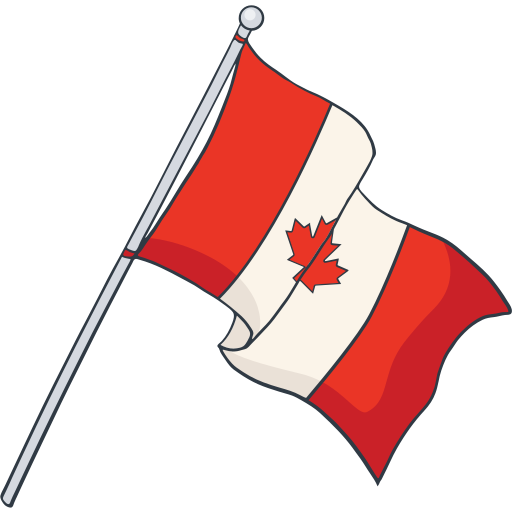Universities in the Canada for international students
What makes students choose Canada as a study abroad country?
Hosting nearly half a million international students, Canada is known to offer high-quality education at affordable tuition fees with degrees that are globally recognised. Add to it, an excellent quality of life, immense post-study work and immigration opportunities - Canada stands out as a popular country to study among international students.
Top Canadian universities
Canada is renowned for its world-class education system, and its universities consistently rank among the best globally. The top Canadian universities offer a diverse range of programs and attract students from around the world. These institutions are known for their academic excellence, cutting-edge research, and strong support for students. With a focus on innovation, interdisciplinary learning, and a global perspective, the top Canadian universities provide a conducive environment for students to thrive and prepare for successful careers. Whether it's in fields like science, technology, engineering, arts, or business, these universities are at the forefront of shaping the future and making significant contributions to various fields of study.
S.No. | Institution | QS Ranking 2023 (Globally) |
1 | University of Toronto | 34 |
2 | McGill University | 31 |
3 | University of British Columbia | 47 |
4 | University of Montreal | 116 |
5 | University of Alberta | 110 |
6 | McMaster University | 152 |
7 | University of Waterloo | 154 |
8 | Western University | 172 |
9 | University of Ottawa | 237 |
10 | University of Calgary | 242 |
Cost of studying in Canada
The cost of tuition fees in Canada varies depending on the type of qualification and institution you choose. On average, you can expect to spend between CAD 13,000 and CAD 35,000 per year. Generally, humanities, education, and arts courses tend to be more affordable, while programs like medicine and engineering are likely to be more expensive. If you're considering pursuing a postgraduate degree, tuition fees are typically higher, and the costs vary depending on the specific program. Similar to many other countries, MBA programs are often the most expensive, with an average cost ranging from CAD 30,000 to CAD 42,000.
S.no. | Study program | Average annual fee |
1 | Undergraduate program | $13,000 to $20,000 |
2 | Postgraduate master's degree | $17,000 to $25,000 |
3 | Doctoral degree | $7,000 to $15,000 |
4 | MBA | $30,000 to $40,000 |
Cost of living in Canada
For international students aspiring to pursue their dreams and achieve a promising future, Canada offers an ideal study destination. With renowned academic institutions, globally recognized degrees, and a rich cross-cultural experience, it is highly sought after. However, managing the costs associated with studying in Canada can be challenging. It is crucial to have a well-structured financial plan in place before you embark on your journey to ensure a smooth transition into your dream institution.
Cost of Living in Canada | Average Cost (CAD) |
Accommodation Cost | CAD 8,000 - CAD 10,000 per year (on-campus lodging) CAD 400 - CAD 700 per month (shared apartment) CAD 750 - CAD 950 per month (homestay) |
Living Cost | CAD 20 per month (communication costs) CAD 250 - CAD 350 (textbooks) varies based on personal expenses and lifestyle choices |
Transport Costs | Varies by city and distance travelled. Example: CAD 9 for a day pass in Vancouver's public transportation system |
Health Insurance Costs | Coverage provided by provincial government health plans or private health insurance (varies by province) |
Documents required to study in Canada
To study in Canada as an international student, you will typically need to provide several documents as part of your application process. The specific requirements may vary depending on the university or program you are applying to, so it's important to check the official website of your chosen institution for the most accurate and up-to-date information. However, here is a list of common documents that are typically required:
- Application Form
- Proof of Identity (e.g., passport)
- Academic Transcripts
- English Language Proficiency Test Results (e.g., IELTS, TOEFL)
- Letter(s) of Recommendation
- Statement of Purpose or Personal Statement
- Resume or Curriculum Vitae (CV)
- Financial Documentation
- Study Permit (issued by the Government of Canada)
- Additional Documents (specific to the university or program)
Job opportunities in Canada
Canada offers a wide range of job opportunities across various industries, making it an attractive destination for professionals seeking employment. Some of the top job opportunities in Canada include:
- Information Technology (IT): With a thriving tech industry, Canada has a high demand for IT professionals, including software developers, data analysts, cybersecurity experts, and artificial intelligence specialists.
- Healthcare: Canada's healthcare sector is growing rapidly, leading to a demand for healthcare professionals such as doctors, nurses, pharmacists, and medical researchers.
- Engineering: Canada has a strong engineering sector, particularly in fields like civil engineering, electrical engineering, mechanical engineering, and software engineering. Job opportunities are available in industries such as construction, infrastructure, manufacturing, and technology.
- Finance and Accounting: The financial sector in Canada is robust, creating job prospects for financial analysts, accountants, auditors, and investment professionals.
- Sales and Marketing: Sales and marketing professionals are in demand across various industries, including retail, e-commerce, technology, and advertising. Roles can include sales representatives, marketing managers, digital marketers, and brand managers.
- Natural Resources and Energy: Canada is rich in natural resources, leading to opportunities in industries such as mining, oil and gas, forestry, and renewable energy. Roles range from engineers and technicians to environmental specialists and project managers.
- Education: The education sector in Canada is thriving, providing opportunities for teachers, professors, administrators, and researchers. International students can also explore opportunities in student support services and language education.
- Hospitality and Tourism: Canada's tourism industry is growing steadily, creating jobs in hotels, restaurants, travel agencies, and event management. Roles can include hotel managers, chefs, tour guides, and event planners.
- Creative Arts and Media: Canada has a vibrant creative industry, offering opportunities in fields such as film and television production, graphic design, advertising, journalism, and digital media.
- Skilled Trades: There is a demand for skilled tradespeople in Canada, including carpenters, electricians, plumbers, welders, and mechanics. The construction and manufacturing sectors offer numerous job opportunities.




